Lee Teng-hui (李登輝), who was born on Jan. 15, 1923, in the farming community of Sanshi Village, Taihoku Prefecture — now New Taipei City’s Sanzhi District (三芝) — during the Japanese colonial era, and rose to become mayor of Taipei and not only the Republic of China’s (ROC) first Taiwan-born president, but its first directly elected one as well.
Educated in the Japanese educational system of the time, Lee, who spoke Japanese, Hoklo (also known as Taiwanese), Mandarin and English, won a scholarship to Kyoto Imperial University, but his studies were interrupted by World War II.
He earned a bachelor’s degree in agricultural science from National Taiwan University (NTU) in 1948, and appeared headed for an academic or civil service career, going on to earn a master’s degree from Iowa State University in 1953 and a doctorate from Cornell University in 1968.
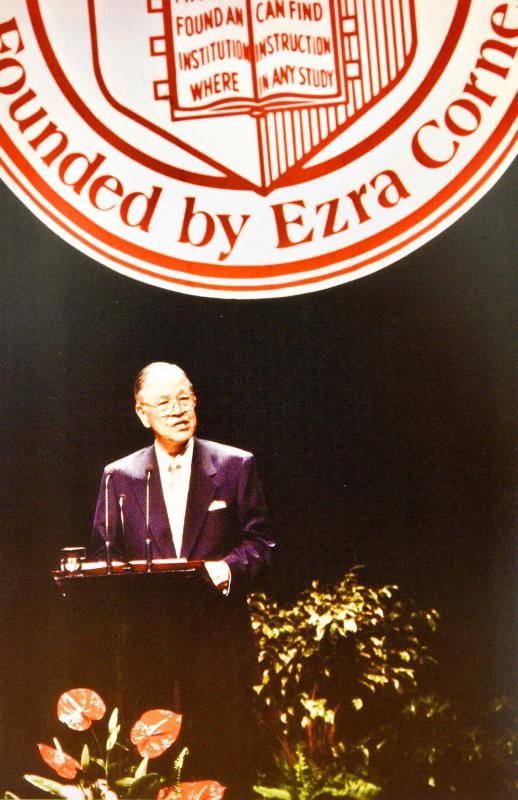
Photo courtesy of Academia Historica
He worked for the US-sponsored Joint Commission on Rural Reconstruction and also taught at NTU and National Chengchi University.
After joining the Chinese Nationalist Party (KMT) in 1971, the following year he gained his first government appointment, as a minister without portfolio with responsibility for agriculture.
He served in that position until June 1978, when he was appointed mayor of Taipei, a post he held until December 1981, when he became governor of the then-Taiwan Provincial Government, serving until 1984, when he became vice president of the ROC.
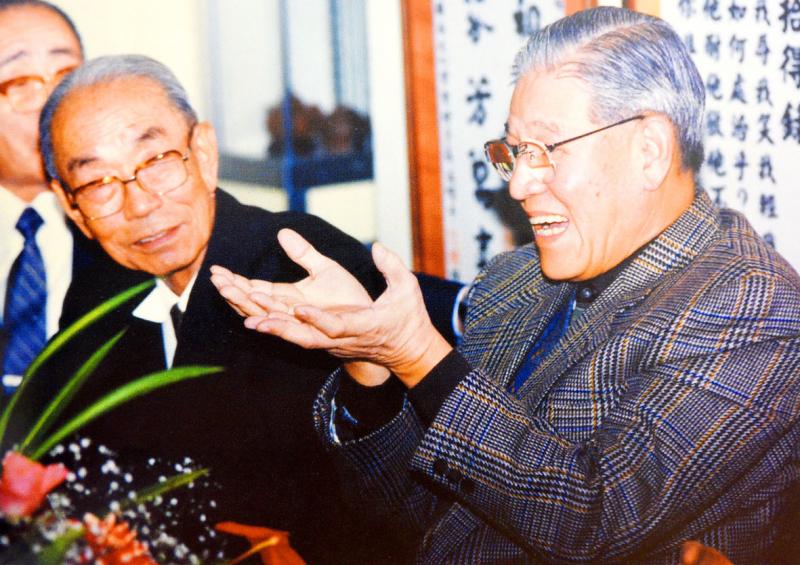
Photo courtesy of Academia Historica
He succeeded president Chiang Ching-kuo (蔣經國), who died on Jan. 13, 1988, although the move was opposed by many Mainlanders within the KMT, including Chiang Kai-shek’s widow, Soong Mayling (宋美齡), who returned from the US to help other conservative Mainlanders to sideline Lee as president and block his accession to the KMT chairmanship.
However, Lee was deft enough to secure enough support to stay in office.
In 1991, he ended the Period of National Mobilization against Communist Rebellion and pushed for the re-election of the “1,000 year” National Assembly and the Legislative Yuan, whose members had served since 1948.
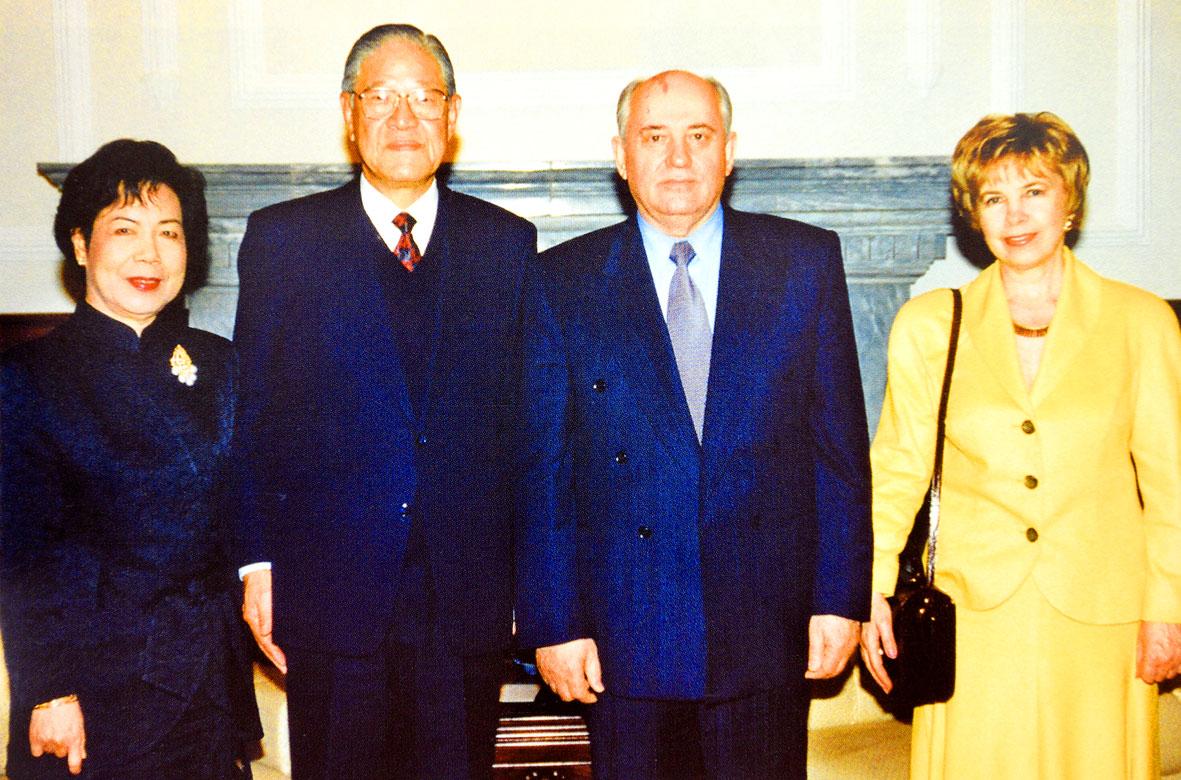
Photo courtesy of Academia Historica
He also oversaw a major reshuffle of the Executive Yuan.
In 1995, he became the first ROC president to publicly apologize for the 228 Incident, and also made waves by returning to Cornell University to deliver a speech.
The following year he became the first directly elected president after the Third Addition to the Constitution established that the nation’s president and vice president should be directly elected.
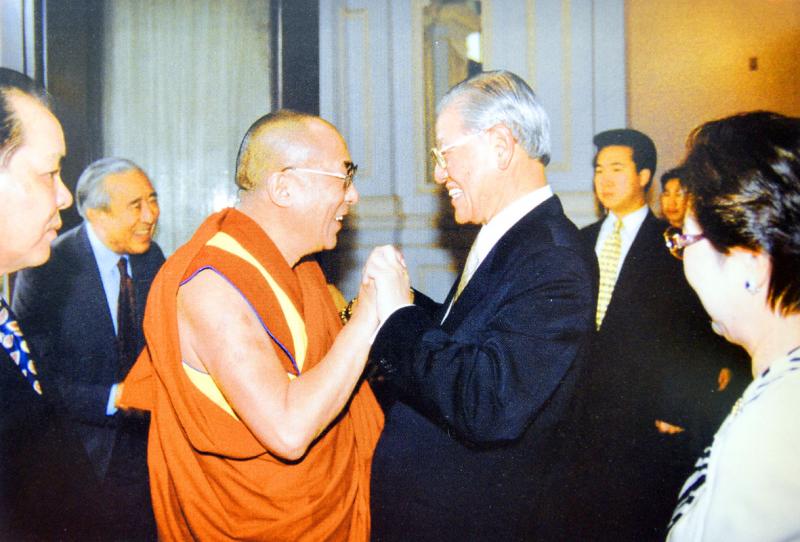
Photo courtesy of Academia Historica
His unparalleled contributions to democratizing the nation and his election that year earned him the nickname “Mr Democracy” from Newsweek magazine.
During his time as president and as KMT leader he favored highlighting Taiwan’s sovereignty and right to self-determination, and also pushed his special state-to-state model of cross-strait relations.
His relationship with the Democratic Progressive Party was highlighted by both rivalry and camaraderie, which is perhaps best exemplified by his collaboration with then-DPP chairman Hsu Hsin-liang (許信良) to freeze the Taiwan Provincial Government in 1997.
He was blamed by many hardliners in the KMT for the party’s loss of the presidency in 2000 to the DPP’s Chen Shui-bian (陳水扁), which eventually led to his being expelled from the party.
In 2004, Lee supported Chen’s re-election and in 2012 and 2016 stumped for Tsai Ing-wen (蔡英文) in her bids to become president.
Today, members of the DPP and pro-independence advocates see Lee as a visionary on the nation’s path to democracy and its efforts to achieve self-determination.
Democracy advocate Peng Ming-min (彭明敏), 96, said there were two contradictory identities in Lee — one was his status as a Taiwanese and the other was his position as KMT chairman.
The last time he saw Lee was at the founding of the Formosa Alliance in Kaohsiung, Peng said.
Lee made great contributions during Taiwan’s period of economic, political, cultural and social transformation, Peng said, adding that he believes Lee will always have an important position in Taiwan’s history.
Additional reporting by Lee Hsin-fang and Diane Baker
This story has been corrected since it was first published.

Taiwan’s Lee Chia-hao (李佳豪) on Sunday won a silver medal at the All England Open Badminton Championships in Birmingham, England, a career best. Lee, 25, took silver in the final of the men’s singles against world No. 1 Shi Yuqi (石宇奇) of China, who won 21-17, 21-19 in a tough match that lasted 51 minutes. After the match, the Taiwanese player, who ranks No. 22 in the world, said it felt unreal to be challenging an opponent of Shi’s caliber. “I had to be in peak form, and constantly switch my rhythm and tactics in order to score points effectively,” he said. Lee got
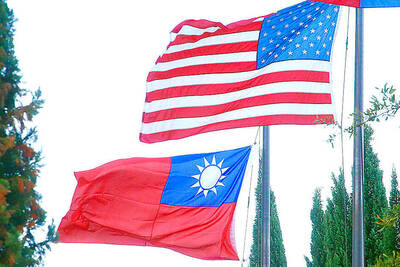
EMBRACING TAIWAN: US lawmakers have introduced an act aiming to replace the use of ‘Chinese Taipei’ with ‘Taiwan’ across all Washington’s federal agencies A group of US House of Representatives lawmakers has introduced legislation to replace the term “Chinese Taipei” with “Taiwan” across all federal agencies. US Representative Byron Donalds announced the introduction of the “America supports Taiwan act,” which would mandate federal agencies adopt “Taiwan” in place of “Chinese Taipei,” a news release on his page on the US House of Representatives’ Web site said. US representatives Mike Collins, Barry Moore and Tom Tiffany are cosponsors of the legislation, US political newspaper The Hill reported yesterday. “The legislation is a push to normalize the position of Taiwan as an autonomous country, although the official US
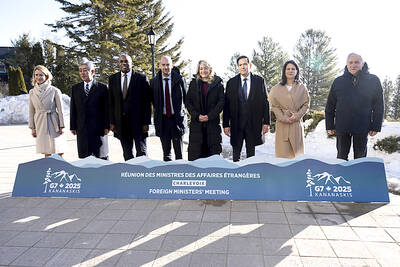
CHANGE OF TONE: G7 foreign ministers dropped past reassurances that there is no change in the position of the G7 members on Taiwan, including ‘one China’ policies G7 foreign ministers on Friday took a tough stance on China, stepping up their language on Taiwan and omitting some conciliatory references from past statements, including to “one China” policies. A statement by ministers meeting in Canada mirrored last month’s Japan-US statement in condemning “coercion” toward Taiwan. Compared with a G7 foreign ministers’ statement in November last year, the statement added members’ concerns over China’s nuclear buildup, although it omitted references to their concerns about Beijing’s human rights abuses in Xinjiang, Tibet and Hong Kong. Also missing were references stressing the desire for “constructive and stable relations with China” and
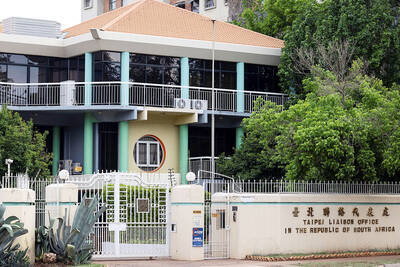
The Ministry of Foreign Affairs yesterday said it has lodged a protest with Pretoria after the name of the Taipei Liaison Office in South Africa was changed to the “Taipei Commercial Office” on the South African Department of International Relations and Cooperation’s (DIRCO) Web site. In October last year, the South African government asked Taiwan to relocate the Taipei Liaison Office, the nation’s de facto embassy, out of Pretoria. It later agreed to continue negotiating through official channels, but in January asked that the office be relocated by the end of this month. As of the middle of last month, DIRCO’s Web